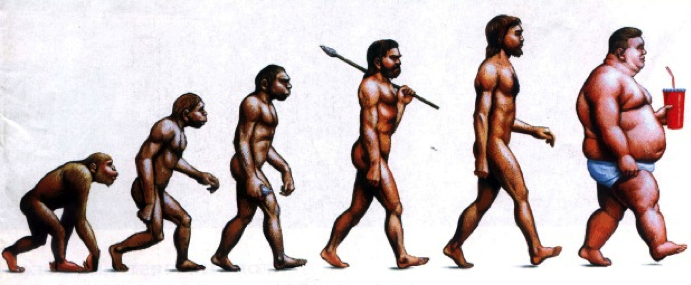Der promovierte Mediziner, Psychologe und Philosoph (sic!), welcher als Leiter der psychiatrischen Abteilung der Universitätsklinik Ulm einen reichen Erfahrungsschatz gesammelt hat, führt enzyklopädisch eine Studie und ein Buch nach dem anderen an, um eine relative einfache These interdisziplinär zu beweisen: der Einsatz von digitalen Medien in Schulen und der Konsum von digitalen Medien im privaten wie auch beruflichen Leben führt zur Degeneration unserer Spezies. Das Schlüsselwort ist hierbei Neuroplastizität: unsere Gehirne funktionieren wie Muskel; nur trainierte Regionen wachsen, untrainierte verkümmern; und genau das geschieht, wenn wir fernsehen, surfen oder videospielen. Erst auf Seite 278 von insgesamt 326 lese ich die absolut unkürzbare Quintessenz dieses Obres: Wir wissen aus sehr vielen guten wissenschaftlichen Studien, dass digitale Medien in Abhängigkeit von der Dosis (je mehr, desto mehr) und vom Lebensalter (je jünger, desto mehr) eindeutig schaden. Warum konnte Prof. Spitzer das nicht eher oder der Verlag im Umschlag des Buches schreiben?
Spitzer startet mit einem Ausflug in die Geschichte der Demenzforschung, und führt den ersten wissenschaftlichen in der zweiten Hälfte des 20. Jahrhunderts dokumentierten Fall von Alzheimer an. Er schliesst den Kreis, indem er gegen Ende seiner Ausführungen die in Südkorea geschaffene Diagnose digitaler Demenz für Deutschland in Kosten für das Gesundheitssystem extrapoliert. In Südkorea, dem Land mit der höchsten Dichte von digitalen Medien in Schulen, waren 2010 zwölf Prozent aller Schüler internetsüchtig und somit den negativen Langzeitfolgen wie Obesität, Schlafentzug, mangelnde Selbstkontrolle, Isolierung, Depression, etc. ausgesetzt. In Deutschland könnten demnach – wenn ich Spitzers Berechnung richtig umgelegt habe - durch die Reduzierung des digitalen Medienkonsums bis 2050 jährlich zwischen 75 und 285 Milliarden Euro an Ausgaben für Demenzkrankenpflege eingespart werden.
Als Nachschlagewerk für Interessierte und für Pädagogen geeignet, ist dieses Buch nicht für Eltern zu empfehlen. Der Autor vermittelt dem Leser durch seinen Stil den Eindruck, man wäre ein Patient der Universitätsklinik und stünde wegen Demenz in Behandlung. Der belehrende Stil gepaart mit einer grundlegend negative Einstellung zu digitalen Medien lässt eine positive Aussicht und einen konstruktiven Ratschlag vermissen, wie Eltern und Lehrer ihren Schutzbefohlenen Licht am Ende des Tunnels erblicken lassen können. Die akribische Analyse eines jeden erdenklich negativen Aspektes der Nutzung von digitalen Medien und ein Rundumschlag auf so ziehmlich die gesamte deutsche Gesellschaft inklusive Politik, Presse, Kirche und Wissenschaft machen diese wertvolle Sammlung an interessanten Fakten zu einer schwer verdaulichen und einseitigen Lektüre.
In den letzten beiden Kapiteln dämmert mir schliesslich warum: Prof. Spitzers gekränktes Ego steht sich selbst im Weg; und dadurch wird eine durchaus sinnvolle Botschaft, die mit viel Fleiss zusammengetragen und untermauert wurde, zunichte gemacht. Es ist die Kränkung eines alternden Mannes, nicht in jenem Ausmass wahrgenommen zu werden, die letztlich eine berechtigte Botschaft sabotiert. Warum hat es ein renommierter Gehirnforscher notwendig ein Logo des Frauenhofer Institutes herabwürdigend nachzustellen (Seite 291)? Also ehrlich, dieser Mann mag einen enormen EQ haben, aber er ist emotional alles andere als reif.
Sachlich fehlen mir schlicht die positive Ansätze. Einerseits in pädagogischer Hinsicht andererseits in Richtung Selbstkontrolle trotz Informationsflut und digitalen Medien. Spitzer schreibt in Kapitel 3, dass Lernen eigenständige Geistesarbeit voraussetzt: je mehr und vor allem je tiefer man einen Sachverhalt geistig bearbeitet, desto besser wird er gelernt. Ohne Zweifel ist be-greifen eine substantiellere Form des Lernens als das unreflektierte Anklicken eines touch screens. Aber Spitzer erwähnt mit keinem Wort, dass es aus pädagogischer Perspektive vor allem um das Wecken des kindlichen Interesses geht und der Lehrende hierbei sowohl mit traditionellen wie auch modernen Unterrichtsmethoden versagen wie auch erfolgreich sein kann. Im Zentrum steht aber das Wecken des Interesses, nicht die Lehrmethode oder das Lehrmittel.
In Kapitel 14 macht Spitzer auf die Notwendigkeit der Selbstkontrolle aufmerksam und führt die positive Auswirkung von Zweisprachigkeit als ein in die Wiege gelegtes Instrument zur Stärkung dieser an. Er konzentiert sich jedoch in weiterer Folge wiederum auf die negative Auswirkunden mangelnder Selbstkontrolle, welche durch den Konsum digitaler Medien hervorgerufen wird und rundet dieses letzte Kapitel mit einem väterlich-arroganten Ratschlag an Verhaltensweisen ab, die nichts mehr mit dem ursprünglichen Thema des Buches zu tun haben. Der für einen Gehirnforscher naheliegende Schluss wäre der Verweis auf die mittlerweile umfassend vorliegenden Forschungsergebnisse zur Meditation gewesen. Diese stellt sich als wesentliches Mittel dar, Selbstkontrolle auch im Zeitalter der digitalen Informationsflut aufrechtzuerhalten und der Zukunft positive entgegenzublicken, indem wir unseren Kindern Meditationspraktiken früh mit auf den Weg geben.
Eltern, die sich wirklich handfeste und erfolgversprechende Ratschläge holen wollen, wie sie ihre Kinder in selbständige und lebensfreudige Menschen erziehen wollen, lege ich statt Manfrag Spitzers Digitale Demenz – Wie wir uns und unsere Kinder um den Verstand bringen The Idle Parent – Why Laid-Back Parents Raise Happier and Healthier Kids von Tom Hodkinson ans Herz: dort wird man in humorvollster Weise mit unzähligen Möglichkeiten beschenkt, wie man mit seinen Kindern wertvolle Zeit ohne digitale Medien verbringen kann. Die beiden Titel sprechen wortwörtlich Bände.

 RSS Feed
RSS Feed